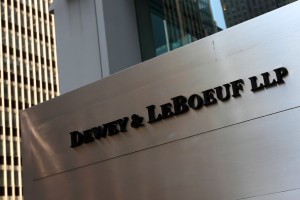The Federal Deposit Insurance Corporation has sued 16 big banks that set a crucial global interest rate, accusing them of fraud and conspiring to keep the rate low to enrich themselves.
Questions:
1. Which banks are included in the suit?
2. What was the rate and for how long are they accused of rigging it?
3. Why are cities and municipal agencies also suing these banking institutions?
Source:
Associated Press staff. (2014). F.D.I.C. Sues 16 Big Banks Over Rigging of a Key Rate. The New York Times, March 14 (Retrievable online at http://www.nytimes.com/2014/03/15/business/fdic-sues-16-big-banks-over-rate-rigging.html?smid=tw-share&_r=1)

















